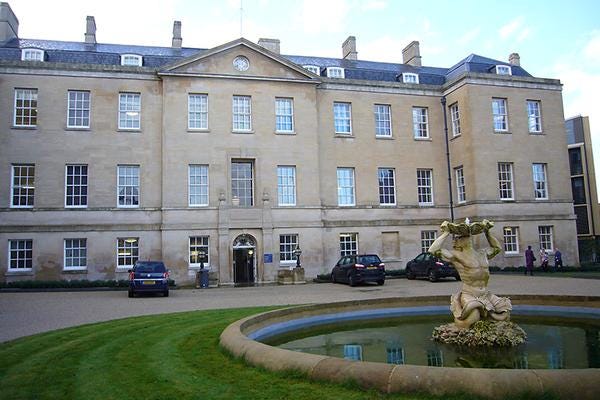Ways of Life
What doors does Philosophical thinking close?
Sorry about the shorter posts recently! I’ve just begun my final year at University, and am a bit caught up in the swirl of things. But, then again, this blog is about thinking through life. I guess not all thoughts need to be profound — and they better not be. A mind full of nothing but profound thoughts sounds awfully boring to me.
The question I want to raise for you today has to do with philosophy. Namely, the question is, what does philosophy do to us?
I should admit, before I try to answer it, that I am quite partial to Philosophy. It is a subject I have devoted the past four years of my life to, almost unceasingly! I better be partial to it—I’ve been immersed within it for a good part of my life.
This is also, I think, part of an answer to the question. I get the sense that some disciplines—I won’t name names, of course—are confined to the classroom. They really are ‘ivory tower’ disciplines. And, while people do throw that accusation around at philosophy, anyone who has actually studied it or spent time thinking about it knows how wrong such critics are.
Once you start thinking about philosophy, after all, you can’t help but take it home with you once you leave the ivory tower—or, for that matter, the café, the bookstore, or even the library.
Philosophical questions nag at us, and have the tendency to arise at the most inopportune times. What is the meaning of life? Am I doing the right thing here? Yet, even worse, they are very rarely compellingly answered. Many years since Plato’s Republic or Confucius’ Analects, the Jury is still out about what actions are right, or what a good person and a good life is.
But it isn’t just the questions that leave the classroom, the bookstore, or the café with us. Reading the people you do in Philosophy—people like Kant, or Bernard Williams, leaves one just dying to imitate them.
I’ll admit. I have a bit of a thing for ending these essays with a flashy paragraph. I’ll also admit that this stylistic flare is almost entirely inspired by my awe at reading Bernard Williams’ prose. I mean look at this:
“But the point is that somewhere (and if not in this case, where?) one reaches the necessity that such things as deep attachments to other persons will express themselves in the world in ways which cannot at the same time embody the impartial view, and that they also run the risk of offending against it.
They run that risk if they exist at all; yet unless such things exist, there will not be enough substance or conviction in a man's life to compel his allegiance to life itself. Life has to have substance if anything is to have sense, including adherence to the impartial system; but if it has substance, then it cannot grant supreme importance to the impartial system, and that system's hold on it will be, at the limit, insecure.” — Williams, Persons, Character, and Morality
So, after reading a piece of philosophy, I am left not only bugged by its questions, but there is a sense in which I look up to it. I am left walking back to my dorm aspiring to one day think like that.
So those are two ways philosophy affects us: it inspires us to ask philosophical questions and to aspire to the wisdom we see in it.
But now we’ve reached a bit of an interesting point. Namely, philosophy sets us with its own questions, and the people that come before us—the people we admire and look up to—set us with the tools to answer them. Not only do we aspire to their command of language, but also to their command of argument.
And, if this is right, then it implies what sounds like a trivial fact—but one that I think will become important in a moment: Philosophy changes the way we think.
This is probably understating things. Philosophy opens us up to a whole world. It really is like being a kid again, walking into the toy aisle at the store. There’s so much to play with, so many questions to ask, and even better, so many new ways to answer them.
But here’s where I want to pause. Philosophy opens all these new doors for us, it brings us to this new world — it is unlikely, reader, that this is the first time you’re hearing this. But, I want to ask, what about the old world?
By this I mean that while we, in Philosophy, spend a great deal of time talking about how great it is — about how many new questions it opens, about how it makes us think more clearly, more logically and coherently — but we never even ask whether it closes any doors for us.
For instance, it seems almost true by definition that by taking up a new way of asking and answering questions, lovers of philosophy will have abandoned the old way of asking and answering questions.
But what is the old way? What perspective have we lost by embracing the rigor of philosophical logic and argument? I am not sure. But we must have lost one. After all, reader, I have just spent a great deal of time talking about how philosophy introduced me to a new world. But surely I was in a world beforehand. Where was it? What were the contours of that world? I draw a blank.
But that is almost more unnerving. To embrace philosophy is to forget the questions one could ask prior.
I don’t have a flashy ending to this one, but perhaps that is comforting.



Philosophy forces us to introspect and question everything in life
a lot of intriguing questions to think about...